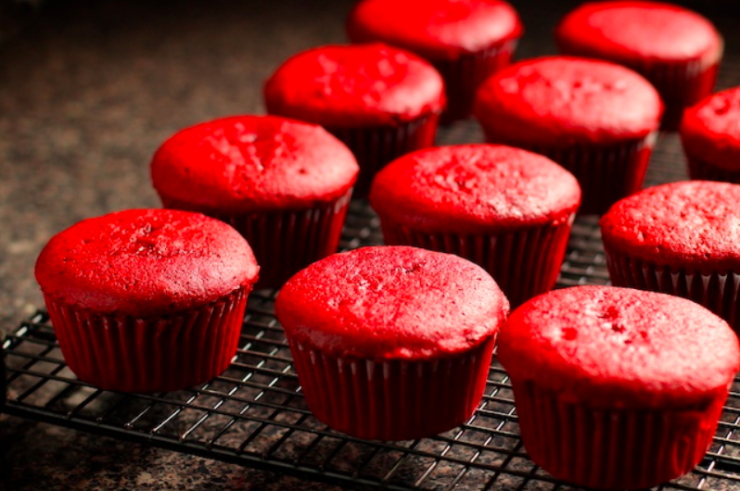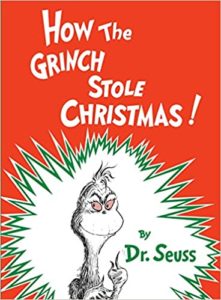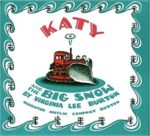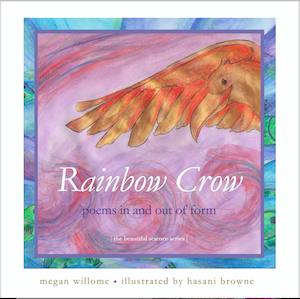
But then again, no one thought the Grinch could change.
Even if you’ve never read the book, you’ve probably seen the TV special from 1966. Do yourself a favor: read the words (aloud) and savor the illustrations.
It’s mostly black-and-white, with splashes of color. Each picture moves the plot forward, like in a graphic novel. We see just enough to make us want to turn the page.
And the story? It’s a poem!
But,
Whatever the reason,
His heart or his shoes,
He stood there on Christmas Eve, hating the Whos
When I was a child, this story scared me. Later, when one of my own children was very fearful, while the other was entirely fear-less, I made sure we read scary things together, like this book. The Grinch is sure that if he steals the trappings of Christmas — the feast, the presents, the decorations — it won’t come. But there, at the top of Mt. Crumpit he has his epiphany when he hears a sound:
And he did hear a sound rising over the snow.
It started in low. Then it started to grow…
But the sound wasn’t sad!
Why, this sound sounded merry!
It couldn’t be so!
But it WAS merry! VERY!
Right now the scariest thing to me is not the thought of the Whos down in Who-ville being unable to gather this holiday. It’s that they won’t be singing.
I miss choir singing. In 2019 I got to be a part of two requiems and a holiday music extravaganza. And that year I said no to participating in the singing Christmas tree — too tired. I would have been less tired if I’d realized the tree wouldn’t happen in 2020.
If the Whos had simply gathered, they wouldn’t have made enough sound to attract the Grinch’s attention. If they had given speeches or said prayers or read from a book of poetry, his small heart would not have grown three sizes that day. What made the change in him? Their singing.
In the good ol’ USA, Christmas tunes are almost ubiquitous. On school field trips we would sing the lyrics to favorite TV shows and commercials, and when we ran out of those we’d hit “Jingle Bells” and “Rudolph, the Red-Nosed Reindeer.” Recently I listened to a podcast in which the hosts, one Jewish and one Muslim, compared favorite holiday songs. This music is a shared part of our culture. And the songs can change us, as they changed the Grinch.
We don’t know what the Whos were singing, but as I look at the illustration of their smiling faces, hand in hand, making a rainbow arc across two pages, I know what I hear.
_______________
Join us for the next Children’s Book Club on Friday, January 15. We’ll read Katy and the Big Snow by Virginia Lee Burton. This book from 1943 is still popular enough that it’s available as a board book for your favorite toddler.
Photo by Jeremy Jenum, Creative Commons, via Flickr. Post by Megan Willome.
Browse more Children’s Book Clubs
“Megan Willome has captured the essence of crow in this delightful children’s collection. Not only do the poems introduce the reader to the unusual habits and nature of this bird, but also different forms of poetry as well.”
—Michelle Ortega, poet and children’s speech pathologist
- Perspective: The Two, The Only: Calvin and Hobbes - December 16, 2022
- Children’s Book Club: A Very Haunted Christmas - December 9, 2022
- By Heart: ‘The night is darkening round me’ by Emily Brontë - December 2, 2022



Laura Lynn Brown says
I’d always thought about the Whos’ optimism, hope, and strong communal values being the things that touched the Grinch’s heart. But of course all of that was embodied in, and carried far beyond them through, their singing.
I have missed singing with people so much. It’s not the same through a screen. At the same time, others’ singing has been one of the great gifts of the pandemic. Mary Chapin Carpenter’s “Songs From Home” weeky on Instagram, Shawn Colvin’s songs and interviews with other songwriters, Andy Gullahorn and Jill Phillips’ weekly Zoom concert (sometimes with singalongs), all the choirs and musician friends recording separately and putting their work together in videos — these have helped keep some light in the darkness of this year. There are even live online “Messiah” singalongs and Lessons and Carols singalongs.
I think, though, that there is an equal and at times even greater power this year when those who, unable to sing with their people, sing anyway, in our homes, our showers, our cars, our walks in the woods. I think it does something in our own hearts.
Megan Willome says
Laura, your comment is a great list of resources. I’d never thought about the impact of the Whos’ singing until this year.